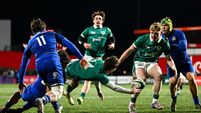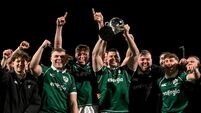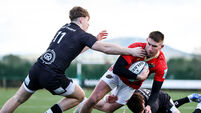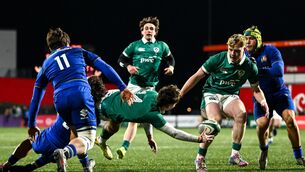Focused Irish hope to build on Boks victory
Ireland flanker Neil Best, withdrawn in the 61st minute because, as coach Eddie O’Sullivan said, he “had put in a ton of work”, attempted to compare what they faced in the summer Down Under to what turned up at a blustery Lansdowne Road on Saturday.
“I’m not so sure if making comparisons is the right thing to be doing right now, but all I can say that it possibly was harder to go to New Zealand than to play at home. I wouldn’t say the opposition on Saturday was weaker — they (South Africa) are much stronger than most world rugby sides.















